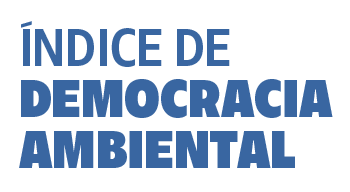Access to information means guaranteeing that anyone can find out what the government is doing - or failing to do - on issues of public interest. This right is provided for in the Constitution, in national laws such as the Access to Information Act and in international treaties such as the Escazú Agreement (not yet ratified by Congress). However, it's not just about disclosing information. Effective transparency requires data that is up-to-date, complete and in formats suitable for reuse (allowing anyone to use and analyze it easily, such as in editable spreadsheets or machine-readable files).
Access to information can be ensured in two ways: active transparency, which is the disclosure of information by public authorities, usually through online platforms accessible to the population; and passive transparency, which is the right of the population to request and receive public information. Together, these approaches make it possible to strengthen social participation and promote a more open governance environment.
How does IDA measure the transparency of environmental information?
The IDA's access to environmental information dimension was assessed using indicators that measure active transparency on environmental issues, such as the Rural Environmental Registry (CAR), environmental licenses, water grants, deforestation and controlled burning permits, infraction notices, fines collected, management of conservation units, regularization data and land conflicts. The information was analyzed according to the following criteria: whether the information is available, whether it is up-to-date, whether it is detailed and whether it is in a reusable format (such as geospatial files).
In the Amazon context, relevant information on deforestation, fires, logging permits, environmental fines and land regularization, for example, needs to be made available so that civil society organizations, journalists and the local population, including indigenous communities, quilombolas and residents of remote areas, can identify and denounce environmental crimes and corrupt practices that occur freely.
Another axis of the IDA's access to information dimension looked at whether the states of the Legal Amazon and the Federal Executive have rules regulating access to information and data protection, open data platforms and effective channels for active transparency.
What do the results show?
The results indicate that there are serious shortcomings in promoting access to environmental information. Relevant data is not made publicly available or, when it is, it is often out of date, incomplete or in a format unsuitable for reuse.
The average for this dimension in the states of the Legal Amazon was 41.7 points, considered "fair". Tocantins (27.2) and Acre (28.4) had the worst results. Mato Grosso and Pará lead the state rankings with 61.5 points. The Federal Executive achieved the best score among the entities evaluated with 68.9 points and the classification "good".
The information regarding the Rural Environmental Registry (CAR), the Animal Transit Guide (GTA) and deforestation authorizations showed several gaps in their availability. This information is essential because it allows, for example, a more complete understanding of the relationship between agricultural chains and deforestation, as well as distinguishing legal from illegal deforestation.
The most worrying picture appears in the information on land conflicts, quilombola territories and land regularization: no state, not even the federal government, has provided comprehensive and accessible data on these issues. This is not by chance - it is evidence of the invisibility, lack of protection and vulnerability of communities in the face of crimes such as land grabbing, violence and environmental degradation.
Why does this scenario need to change?
Access to environmental information is fundamental for strengthening environmental governance, for participation and social control of public policies, for monitoring the actions or omissions of governments and companies, as well as for detecting environmental crimes and associated illicit activities, such as fraud and corruption. It is also essential for guaranteeing the other dimensions of IDA: participation, justice and the protection of defenders. Through it, society is able to participate in decisions and demand effective policies, it is able to sue bodies in the justice system for redress and obtain information to protect itself against violations of its rights.




